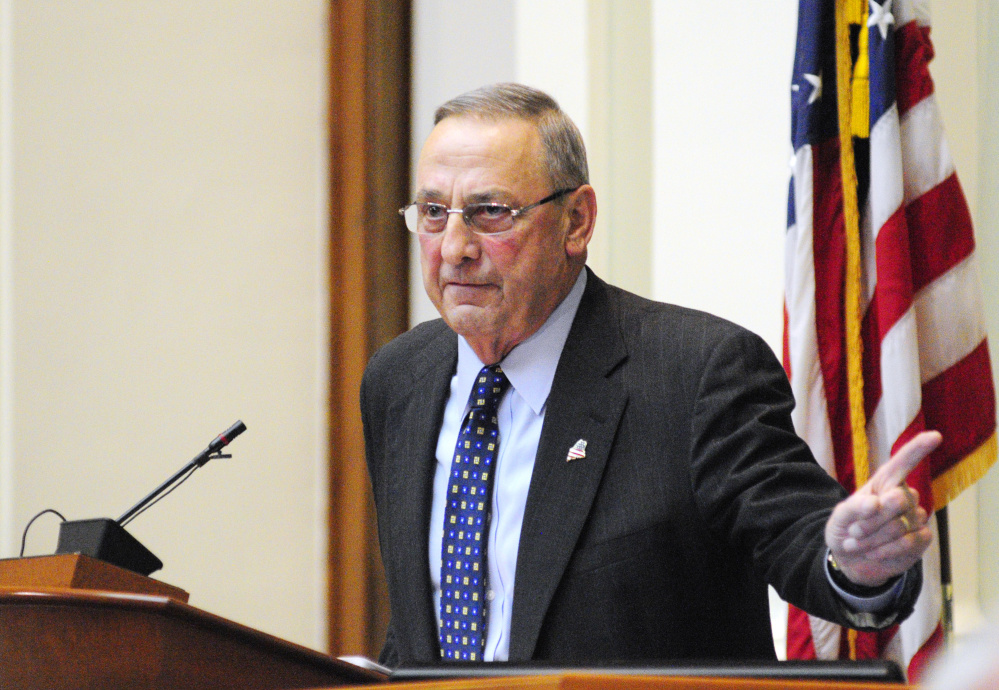In 1649, King Charles I of England stood before his people and said: “I must tell you that the liberty and freedom (of the people) consists of having of government those laws by which their life and their goods may be most their own. It is not for having a share in government, sir, that is nothing pertaining to them. A subject and a sovereign are clean different things.”
And then the people chopped off his head.
This week, Maine’s governor, Paul LePage, expressed a similar belief.
“I hear the word ‘democracy’ every day. We are not a democracy,” the democratically elected executive told a chamber full of the people’s democratically elected representatives at the annual State of the State address.
“We are a representative republic,” LePage said. “And we the elected officials need to act like it.”
LePage’s words got a much warmer reception than King Charles’, at least from Republicans. But a quick look at a dictionary will show that what he said makes absolutely no sense.
A “republic,” according to the American Heritage Dictionary is “a political order in which the supreme power lies in a body of citizens who are entitled to vote for officers and representatives responsible to them.” In other words, a republic is a democracy, which the dictionary defines as “government by the people, exercised either directly or through elected representatives.”
Maine is a democracy in both senses. We send representatives to Augusta to make laws, and when necessary we allow the people to make their own laws, through the citizen initiative process. Both kinds of laws carry the same weight. Either way, the people are sovereign.
Gov. LePage gave his lecture on political theory because he is trying to convince these lawmakers to reject a law that was overwhelmingly passed by referendum last November – an increase in the minimum wage. LePage repeated his claim that the people were unqualified to decide the matter because they didn’t understand what they were voting on. LePage called on the people’s representatives to throw out the results of the election and rewrite the minimum-wage law themselves.
If the governor has ideas about amending the process for citizen initiatives, we are listening. Too many questions don’t lend themselves to yes-or-no answers and would be better dealt with through a deliberative process. Maine appears to be a cheap date for some monied interests that can pay signature gatherers to easily get a question on the ballot. The York County gambling question that is headed to the voters this year is a prime example.
But the people of Maine are not overly easy to convince. The involvement of well-heeled groups was not able to force a change to state bear hunting laws, for instance, or to put in place mandatory background checks in private gun sales,
Even if the Legislature does make it harder to get a question on the ballot, lawmakers have no business treating ones that have already been decided as if they were just suggestions.
There were 417,132 people who went to the polls in November and said “yes” to raising the minimum wage, the highest vote total for any referendum in Maine history. It was also 122,599 votes more than Gov. LePage got the last time he ran for election.
Despite what the governor says, Maine is a democracy and the people have spoken. Now it’s time for their representatives to get to work.
Send questions/comments to the editors.


